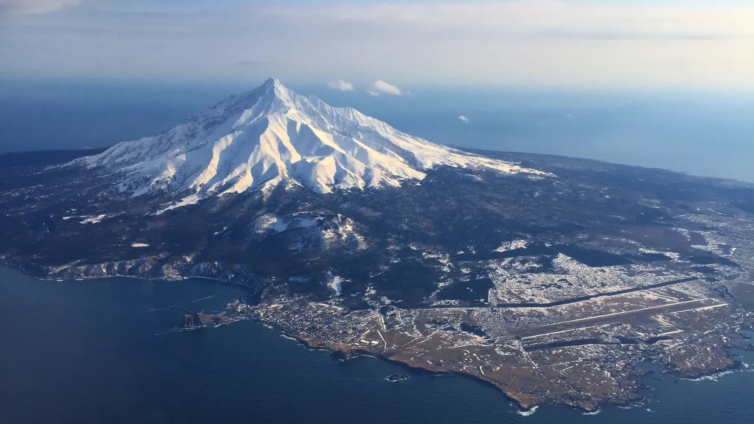Buffeted by wild winds and blanketed in deep powdery snow throughout winter, the remote island of Rishiri off Japan's north-western tip is a self-powered skier's paradise.
"It's pretty much always windy here," explained Toshiya Watanabe, sitting in the living room of his guesthouse after dinner. Skis, surfboards and fishing equipment of all kinds were neatly stacked in the entrance.
The taste of local seafood hotpot and sake still on my lips, I peered through the large living room window and could just make out the dark contour of Mount Rishiri silhouetted in the moonlight, snow blowing off the ridgeline.
Toshiya is a native of Rishiri, the north-westernmost island of Hokkaido, which is in itself the northernmost of Japan's main islands. Together with his wife Maki Watanabe, he owns the guesthouse Rera Mosir, which in the language of the indigenous Ainu people, Rishiri's ancestral inhabitants, means "domain of the wind".
Mount Rishiri, a dormant volcano and the island's imposing lone peak, rises up at the island's centre. Toshiya started pulling out maps, photos and magazine cuttings, his thick weather-worn fingers pointing out countless skiable lines – all of which he says he has skied in more than 20 years exploring the island's backcountry.
"The true beauty of Rishiri is that it isn't perfectly tepee-shaped like Mount Fuji. The wind can't just wrap around it," he explained. "It is really many mountains wrapped into one and, if you know where to look, you can always find shelter and, of course, some of the best powder in the world."
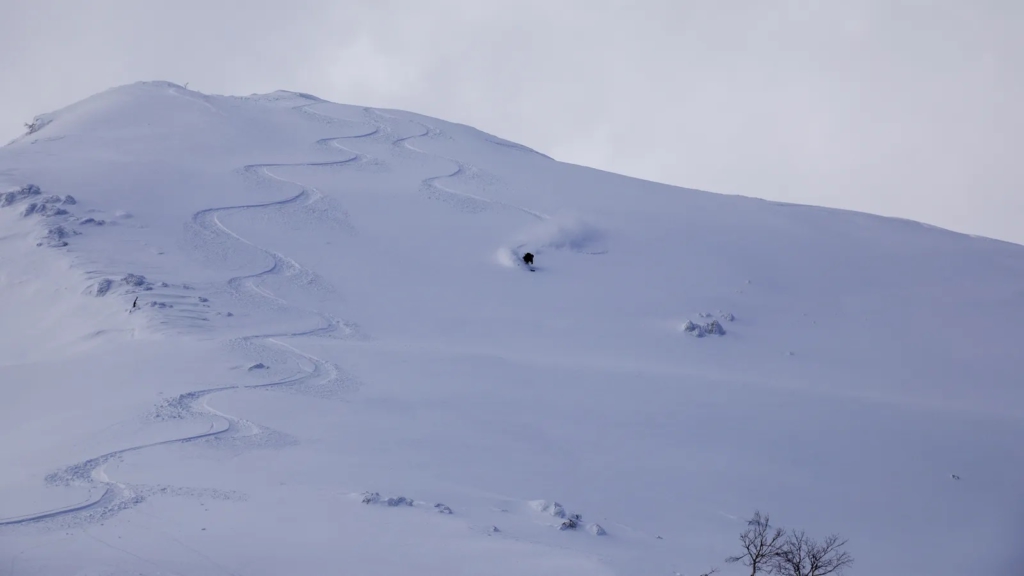
Getting here isn't easy. When I visited in early March, the short 20km ferry crossing from Wakkanai, Japan's northernmost city, was delayed for 24 hours due to stormy weather. Even when I was allowed to make the crossing together with a handful of eager passengers, the eerily empty ferry, designed to carry more than 500 people, lurched for two long hours on the residual swell.
The true beauty of Rishiri is that it isn't perfectly tepee-shaped like Mount Fuji
Not until the boat had finally found shelter behind Rishiri's jagged silhouette did I muster the courage to venture out onto the ice-encrusted deck, binoculars in hand, to get my first proper look at the island and its standalone mountain.
In Ainu, Rishiri means "high island" and locals also refer to it as ukishima, "floating island". I could see why. Rising 1,721m directly out of the sea, Rishiri seemed almost out of place at first glance, as if a single mountain had drifted away from a larger range and was left to float in the middle of the ocean.
When observed more closely, its conical shape was in fact broken up with steep ridges and gullies covered in immaculate white snow, which stood in stark contrast to the dark green sea that lapped against its shores.
"Understanding Ainu names can tell you a lot about a place and what the Ainu people thought of it," explained Ayami Saga, a Wakkanai local who helped organise my trip, as we stood out on deck. "Wakkanai itself gets its name from the Ainu 'Yam-wakka-nay' which means 'cold water river'."
As we got closer, slowly pulling into the quiet harbour, I saw dozens of fishing boats lying dormant, bound to the docks waiting for spring and calmer waters. The two hotels overlooking the bay, dark grey concrete structures, were shuttered up with snow piled high around them.
It was hard to imagine that in summer, more than 120,000 tourists descend on the island, many of them in search of the coveted Rishiri sea urchin, or uni, as well as the kombu seaweed that is a prized delicacy across Japan and beyond.
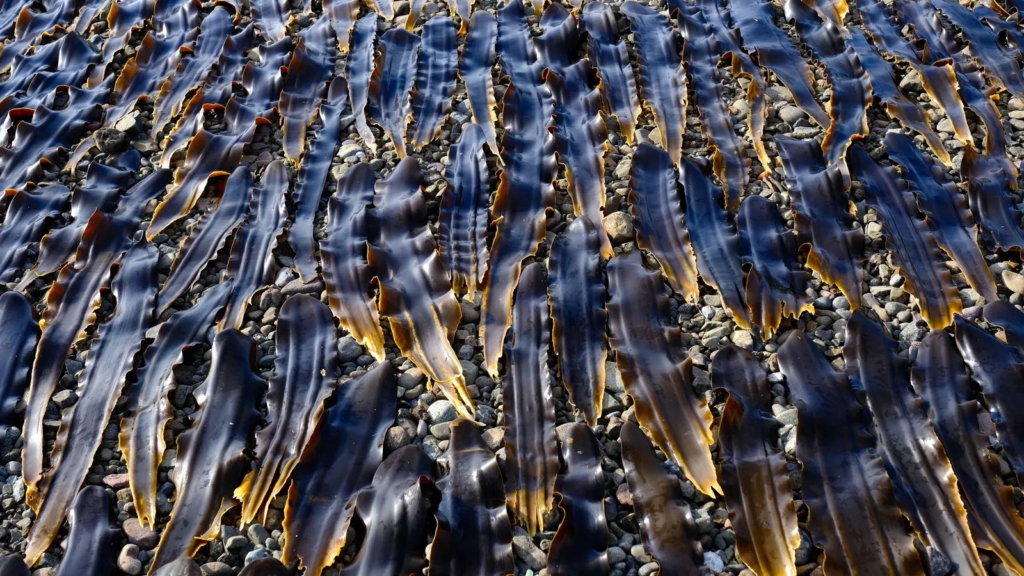
Fishing has been the backbone of the island's economy for more than half a century. Toshiya's family moved to Rishiri from mainland Japan in the 1940s when his grandfather sought to make a living in the booming kombu business. At the time, Rishiri's population was at its peak and there were close to 20,000 people living on the island, most of whom made a living fishing the abundant herring.
Today, declining fish stocks, an ageing population and a lack of economic opportunities in the winter season have pushed most young people to search for fortune in large cities like Sapporo (the capital of Hokkaido) or Tokyo, leaving little more than 5,000 mostly elderly residents behind.
Toshiya too moved to mainland Hokkaido when he was young to train and work as a certified mountain guide, only to return in 2003 to help with his family's hotel business. "Back then, we would be fully booked for three months in summer, and then have nothing to do for the rest of the year," he recalled.
In winter, Rishiri feels like a fishing town in hibernation and about as far removed as you can get from the bustling ski resorts in popular Japanese destinations such as Niseko on the main island of Hokkaido, or Hakuba, a four-hour drive north-west from Tokyo.
There are no large hotels, no ski lifts and no queues of brightly dressed skiers eagerly waiting to head up the mountain. Here, anything you wish to ski you must first ascend yourself using climbing skins attached to the bottom of your skis and a healthy dose of perseverance.
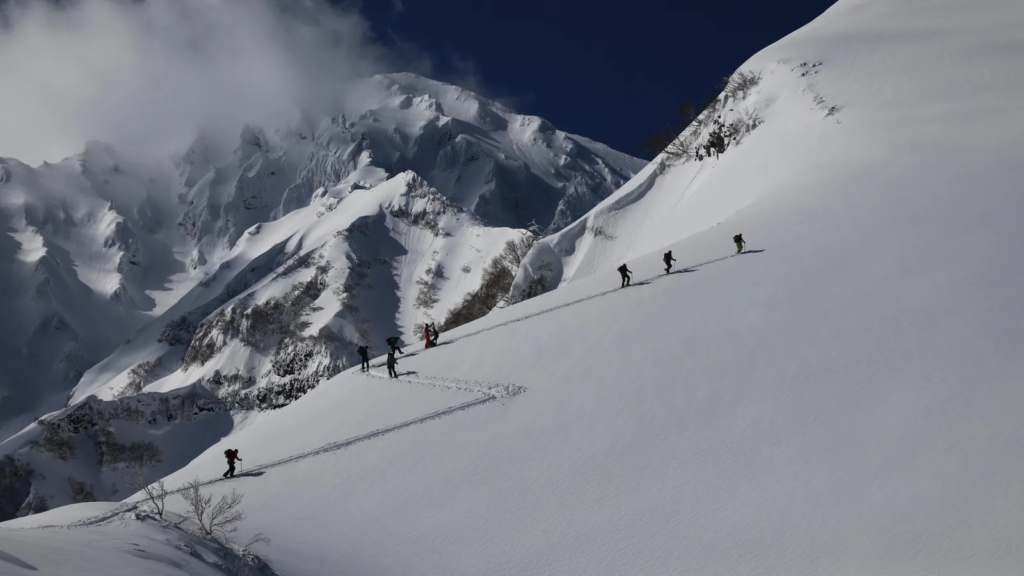
Though many locals look in friendly bemusement at travellers who come to the island in the dead of winter, when there is little else but snow, for Toshiya and those who brave the journey, the draw lies in Rishiri's pristine nature and promise of unbridled adventure.
What Rishiri is missing in ski infrastructure, it more than makes up for in the freedom to paint your ski tracks on the mountain's untouched canvas while basking in solitude and silence.
Toshiya is the only guide who lives on the island year-round, and since 2004, he has been offering nature tours in both the summer and, crucially, winter. In his first year as a Rishiri ski guide, Toyisha had just a handful of winter customers. Not many more came the next year.
However, each person who visited went home with tales of a magical land of bottomless powder snow, guarded by stormy seas and icy winds from the encroachment of masses hungry for easy access ski adventures and the commodification of nature implicit in ski resorts.
By 2019, just before the Covid-19 pandemic, Rera Mosir's 25 beds were occupied for most of winter. "We now employ two extra guides to help bring clients, including professional skiers, out into the mountains and one person to help me with the guesthouse," explained Maki, who moved here from Sapporo when she married Toshiya in 2020, and hasn't looked back since.
I'd decided to travel here after hearing countless stories about descending Rishiri's ridges with unimpeded ocean views. Quietly, I was hoping to be able to complete one of my lifetime ski goals: skiing all the way to the sea.
"Today's wind is coming from the west, so we'll ski on the east face," Toshiya informed me when I made my way downstairs for my first day of skiing. It was just after dawn and the sunlight was gaining in intensity. I peered out the living room window to find a new layer of fresh snow on the ground and a staggering view of Mount Rishiri, its white crests and cornices standing out against the crisp blue sky.
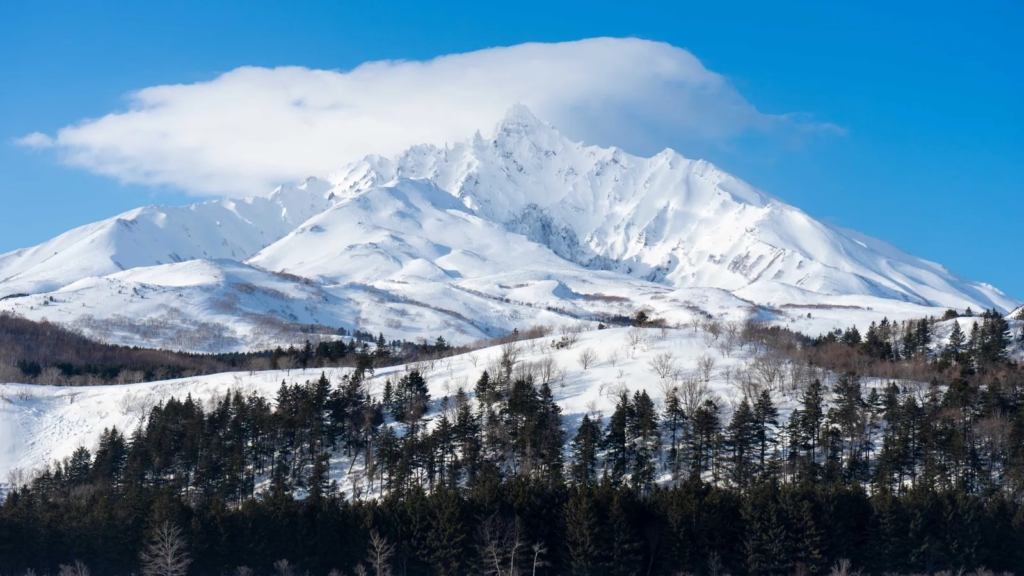
After a breakfast of grilled local fish, homemade pickles and the customary bowl of rice, we quickly left the guesthouse and made the short 15-minute drive along the coast to the trailhead, just a stone's throw away from the sea.
As we started to climb, my eyes were fixed on the back of Toshiya's boots rising and falling with a slow and regular rhythm as he broke trail with his skis. We worked our way up the ridgeline leaving behind a deep trail in the fresh snow.
After a few hours of steady climbing, lost in my thoughts, I took a second to pause and catch my breath, inhaling the cold, biting air. As I raised my head and turned to look behind me, the view was like nothing I had seen before. Instead of mountains and valleys, I was staring directly down at the sea, which was painted in the deepest of blues that shimmered in the bright sunlight.
To the east, I could clearly make out the white coast of Hokkaido, and to the north, more than 100km away, Toshiya pointed out the islands of Moneron and Sakhalin. "It's one of the first times we see them this winter," he commented, the creases at the sides of his cheeks revealing that even he was impressed by the visibility on this clear, sunny day.
A couple of hours later, we reached the top of the ridge that had kept us sheltered from the wind that was busy shuttling the occasional cloud over our heads at breakneck speed. I look longingly up at the summit, still a good 600m elevation-gain away, yet tantalisingly close. "No-one has summited Rishiri this winter," Toshiya said. The strong winds kept the peak off-limits that day as well.
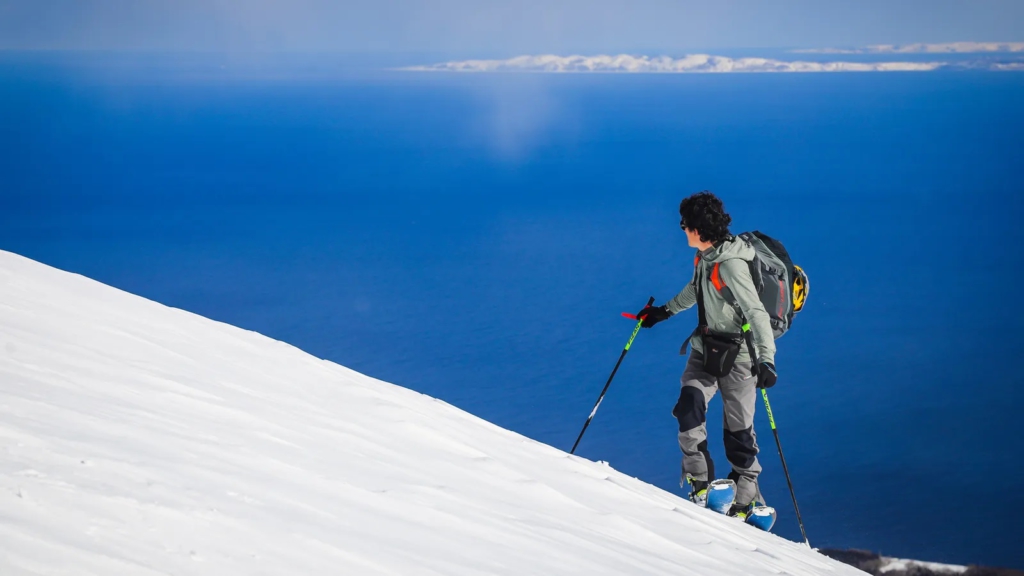
After a snack of chocolate and a sip of warm tea, we got to work removing the climbing skins from the bottom of our skis, packing them away as the tingling excitement that precedes a promising descent grew in the air.
Toshiya was the first to set off, kicking up a cloud of fine powder with each flowing turn and leaving behind precise brushstrokes on the mountain's pristine face. As he came to a stop just within my sight, I looked down hungrily, scouting my own line that would lead directly to the glistening blue sea below.
There was nowhere else in the world I would rather be.
Latest Stories
-
TotalEnergies CEO defends company against East Africa abuse allegations
1 hour -
Niger plans to cut number of Chinese oil workers, documents show
1 hour -
Zelensky says ‘US silence’ over Russian attacks encourages Putin
2 hours -
South Africa town leader ‘sad’ about Trump’s misuse of white crosses video
2 hours -
King’s invitation to Canada sends a message to Trump – and the world
2 hours -
EU needs until 9 July for US trade talks, chief says
2 hours -
Americans remember George Floyd on fifth anniversary of death
2 hours -
Lewandowski double seals Barca final day win at Athletic Club
3 hours -
First Lady launches GHANASCO’s 65th anniversary, praises school’s legacy
3 hours -
‘Big Four’ reunite at Nadal’s French Open farewell
3 hours -
Villa issue complaint after refereeing ‘big mistake’
3 hours -
Administrative fees at ports shouldn’t be priced in dollars – Institute of Freight Forwarders
4 hours -
Baba Rahman spotted in Black Stars camp ahead of Unity Cup
4 hours -
Omar Sterling is my all-time favourite Ghanaian rapper – Gyakie
4 hours -
Mohammed Kudus scores to seal 3-1 win for West Ham against Ipswich Town
4 hours

